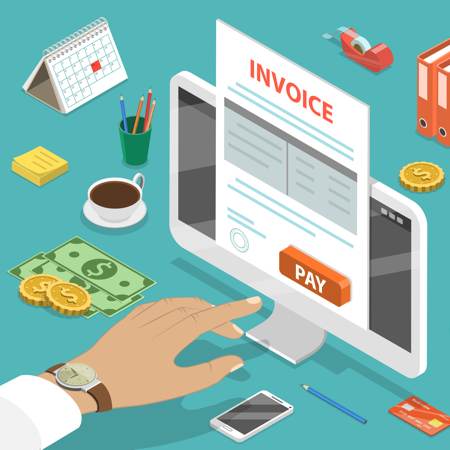Why outsource your payroll administration

As a business owner, you know that managing payroll in-house can be a complicated affair. The payroll process is time-consuming as the tasks include statutory sick pay, statutory maternity/ paternity/ adoption/ shared parental pay, student loan, holiday pay, bonuses, pension and various National Insurance classes, among other issues like preparation of various forms (such as P11, P35, P45, P46, P60) pertaining to employment.
Spending your time dealing with payroll may not make sense for a small business owner because there are other areas that need your attention. Equally, hiring a dedicated person in-house to manage payroll for a small team seems excessive too. This is why it makes sense to outsource your payroll administration to a professional payroll company like TaxAgility.
Here are the five reasons why outsourcing your payroll administration is a smart move.
Focus on other aspects of your business
As an employer, you are obligated to record your employees’ salary in payroll software, even if they get less than £116 a week. The process involves:
- Calculating deductions (taxes and National Insurance) from their pay.
- Calculating the company’s National Insurance contribution if their earnings are above £157 a week.
- Producing payslips for every employee.
- Submitting their pay and deductions to HMRC in a Full Payment Submission (FPS).
- Recording the payments.
Dealing with payroll is a time-consuming task. Every hour you spend on payroll administration is an hour that could be better spent developing your business or growing your business network. By allowing us to manage your payroll, you can turn your focus back achieving your business goal.
Lower your risks
Payroll is an on-going process that requires constant attention as HMRC is quick to issue a penalty. For example, in addition to paying your employees, you need to pay HMRC for the National Insurance contributions by the 22nd day of every month, otherwise you may have to pay a penalty.
In the event that you have paid your employees but forgotten to send the FPS to HMRC, they may also fine you.
When HMRC introduces a new law, like companies must now provide and pay into a workplace pension scheme for their employees, you need to be in full compliance of the law. The minimum contributions are 5% (2% from employer and 3% from employee) until 5 April 2019, then 8% (3% from employer and 5% from employee) after that day. With us staying on top of this issue, we can help you manage it so you’re compliant with the new law.
Cost saving
Outsourcing your payroll service can be highly cost-effective when you factor in the time spent on creating tax documents and monthly (or yearly) payroll software maintenance cost. You also don’t have to spend time learning the payroll software and manage the upgrade yourself.
Simplified National Insurance contributions
Splitting up into various categories, National Insurance contributions are complex. Understanding the classes – Class 1, 1A, 1B, 2, 3, 3A and 4 – alone require you to a good amount of time reading them. Leave them to the professionals because this is what we do best.
Full year-end payroll services
Every April, you will need to review your payroll reports, give your employees a P60 and prepare your employee records for the next tax year, plus you will also need to let HMRC know that it is your final EPS report of the year. There are certain dates you need to keep in mind, such as:
- Before 5 April: send your final EPS to HMRC.
- After 6 April: update your payroll software and employee payroll records.
- By 31 May: give your employees a P60.
- By 6 July: report employees expenses and benefits to HMRC.
- Our payroll service will gladly help you to manage the year-end payroll process.
Outsource your payroll administration to the professionals
If you want to spend less time on tedious payroll administration and more time on other areas of your business, the best thing you can do is to outsource the work to us. At TaxAgility, our team will provide you with consistent payroll administration as well as one-off payroll exercises like providing your employees with bonuses, overtime payments and commission.
Contact us today on 020 8108 0090 to discuss outsourcing your business’ payroll administration to our experienced accounting team in London. Alternatively, you can get in touch with us via our contact page to arrange a complimentary, no obligation meeting.
If you found this article useful, why not take a look at:
- How to grow your business: outsourcing the work
- Does HMRC object to putting family members on the payroll?
Tax saving tips to maximise your start-up’s potential
 When you’re first starting out in business, it’s essential that you focus as much of your energy as possible on maximising your start-up’s potential. Your time is valuable, and there are better places to spend it than on time-consuming tax issues.
When you’re first starting out in business, it’s essential that you focus as much of your energy as possible on maximising your start-up’s potential. Your time is valuable, and there are better places to spend it than on time-consuming tax issues.
This is why hiring a specialist tax accountant from TaxAgility is so important – we can ensure you’re saving as much money and time as possible, and we also provide you with valuable business information gained from years of experience. Here are some tax-saving tips you can apply to your business.
Know your industry
Knowing your industry inside out is not just good for business, it can also save you money on your taxes. If you keep yourself engaged in what’s going on in your industry, you’ll be the first to know of any new reliefs or allowances approved by HM Revenue and Customs (HMRC). For example, if you’re in the construction industry, knowing how the Construction Industry Scheme (CIS) works is beneficial. If in doubt, check with an accountant specialises in your industry.
Check if you’re eligible for Seed Enterprise Investment Scheme (SEIS)
SEIS is a scheme that offers tax relief to those individual investors that buy shares in new companies. Though you’ll have to give a small chunk of your start-up away in exchange for their investment(s), it can’t hurt to check if you’re eligible. You can receive up to £150,000 of tax-free investment, but unless your company follows the rules laid out on the government web page your investors will not be able to claim the tax relief.
Choose the right business structure
You can start saving on your tax bill in the first month of your start-up’s life if you choose a business structure that’s appropriate to your start-up. Certain structures can allow you to adjust your earnings to avoid certain taxes – for example, if you set yourself up as the director of a limited company, then you can pay yourself in dividends, which you do not have to pay National Insurance Contributions on.
The Making Tax Digital (MTD) scheme is also fast approaching. From 1 April 2019, VAT-registered businesses with a taxable turnover above the VAT threshold of £85,000 are required to use the MTD service to keep records digitally, plus also use software to submit their VAT returns from 1 April 2019. If you haven’t made the switch and chosen a system that can integrate with online accounting easily, then it’s time to talk to an accountant with experience in cloud accounting to find out more.
Work from home
One way to maximise your start-up’s potential when you’re just starting out is to work from home, as you can save money on expensive office rental fees. At the moment, HMRC allows you to claim £4 a week to cover fixed expenses. In addition, you can also claim tax relief for other expenses like telephone calls and electricity for your work area. However, it must be said that you cannot claim things that are used for both private and business, such as rent or broadband access. To find out more about how much household expenses can be reimbursed, visit this EIM01476 page.
Hire an accountant
It can be tempting to try and save money by doing your taxes yourself. However tax laws are complex, and you need a professional to ensure you’re saving as much as possible, within the permitted law. The sooner you hire an accountant, the sooner they can get to work ensuring you’ll only be paying the tax you’re liable to pay.
Accountants for small businesses
At TaxAgility, we are Accountants for small businesses including start-ups. One area we specialise in is business tax for small businesses, where we can show you which tax reliefs you can apply for and any expenses you can claim, potentially saving you thousands of pounds worth of tax.
If you’d like to know more about tax saving tips for your start-ups or small business, contact us today on 020 8108 0090 or get in touch with us via our contact page to arrange a complimentary, no obligation meeting.
If you liked this article, you might also like:
What tax exemptions apply for Christmas gifts, bonuses, and parties?
 Christmas is just around the corner, which means it’s time for an annual refresher on the tax exemptions surrounding Christmas gifts, bonuses, and office Christmas parties.
Christmas is just around the corner, which means it’s time for an annual refresher on the tax exemptions surrounding Christmas gifts, bonuses, and office Christmas parties.
Though these rules apply to all businesses, in this article we are going to focus on how small and medium-sized enterprise (SME) owners should think about these employee benefits in order to maximise the value (and fun) for your employees. Here’s what you need to know to keep your tax liabilities to a minimum.
Christmas gifts
You do not pay tax on Christmas gifts that are considered to be ‘trivial benefits’. In order to be a trivial benefit, a benefit must cost £50 or less and cannot be a reward for their work or performance. It also cannot be cash or a cash voucher.
Gifts that are not trivial are taxed under Class 1A National Insurance, and if the gift can be resold or exchanged for cash then it may be taxed as earnings.
Please note that if your company provides trivial benefits as part of a salary sacrifice arrangement, then you will report it on form P11D on the salary given up and the worth of the trivial benefits. These rules apply to arrangements made after 6 April 2017.
If you’re a director of a ‘close’ company, meaning a limited company run by five or fewer shareholders, then you cannot receive trivial benefits worth more than £300 in a tax year.
Christmas bonuses
Cash bonuses are always going to be taxed, regardless of their size. Any cash gift you give to an employee will count towards their standard earnings and will be taxable under PAYE tax and Class 1 National Insurance Contributions, along with their other earnings.
You may also give tangible and intangible items to your employees as a Christmas bonus, but you will need to declare it on your end-of-year tax form (form P11D) and pay class 1A National Insurance Contributions on the value of the benefit.
Christmas parties
In order to ensure you keep your tax liabilities to a minimum when hosting a Christmas party for your employees, you’ll need to keep in mind:
- The party must be an annual event, not just a rare occurrence.
- The total cost of all parties you host in a given tax year must not exceed £150 per head, including VAT.
- You can either allocate £150 per head for a grand Christmas party or split the amount across a few parties in a given tax year.
- The amount £150 per head can include food & drink, travel expense, and other party-related items.
- If your annual parties do exceed £150 per head, your employees will have to pay tax on the entire amount, not just the value over £150.
- You must invite every employee working for your business or, for a larger SME, every employee working at a particular location.
Experienced tax accountants
Tax is a complex issue but as professional tax accounts, we’re here to help and provide the most tax efficient way to run your business, from Christmas party allowance to taking the money out of your small business, among other tax-related issues.
Contact us today on 020 8108 0090, or get in touch with us via our contact page to arrange a complimentary, no obligation meeting.
If you found this useful, you might also like:
- Tax guide for Christmas parties and Christmas gifts
- Are you aware of the tax rules for corporate gifts?
Xero Accounting: Update your business

At TaxAgility, we understand the importance of proper finance management better than anyone. With online accounting soon to become mandatory due to the Making Tax Digital scheme (MTD), there’s never been a better time to update your account management.
Xero – the right choice
Xero Accounting gives you access to timely, accurate and relevant information at a low monthly cost. It’s an internationally renowned, multi-award winning piece of software. Xero is simple, powerful and compatible with hundreds of third-party apps like PayPal, meaning it integrates seamlessly into nearly every business model. It’s also one of the few online pieces of software that is government approved as fully compatible with MTD.
The advantages of Xero
Built for small business owners – Xero simplifies business accounting for small business owners. You don't have to know any accounting jargon to understand your finances.
Online hosting – As all of your data are stored in the cloud, you can access it from anywhere in the world - you only need an Internet connection. You don't need to worry about backing up your files either, as they will be stored on secure servers with multiple redundancies in place. In addition, there is no need to manually apply software upgrades since the vendor takes care of this for you.
Electronic bank feeds – Xero can be configured to receive your bank statement data automatically, cutting down on administration time. It also presents your data as an electronic bank feed, bringing all of your information together on one screen - no more endless searching through bank statements and invoices.
Automated transactions – Most businesses have recurring, fixed-price transactions, and these repetitive processes are easy to automate. Xero excels at managing repeat payments, plus it also records them for your convenience, letting you view your payments quickly and easily.
Simplified client invoicing – Keeping track of all of your business' invoicing can be hard, and forgotten invoices can hamper your growth if you don't recover money that is owed to you. Xero allows you to set invoice reminders and send your clients emails reminding them about unpaid invoices, so you don't have to manage them yourself.
Flexible reporting – Xero lets you view and share reports and budgets in real-time, so you don't have to wait until the end of the month. It also allows you to condense years of paperwork into simple graphs that plot the shape of your business, how it’s growing and what direction you’re going in. This information is critical in making informed financial decisions about your business. Our accountants can help you make sense of the reports, so you can understand what areas need work and whether your business is on the right track to financial growth.
Easy collaboration – A major benefit of cloud accounting is that you can allow other key users - your bookkeepers and/or your accountants for instance - to access relevant information wherever they are. This means they can review the financial details with you in real time, even over long distances.
Multiple third-party software enhancements – Xero is compatible with over 400 pieces of third-party software that can be used to expand its functionality. For example, the software tool WorkflowMax can aid with project management, and the electronic API Salesforce can offer enhanced Customer Relationship Management (“CRM”) functionality by updating both itself and Xero simultaneously.
Extra benefits of Xero
As Gold Partners with Xero, we have extensive experience in working with the software, having helped businesses to use it since 2011. Working with us gives your business access to all of the perks that only a Gold Partner can provide, including insights from Xero-certified advisors to help you use the software to your advantage.
If you wish to discuss Xero Accounting in more detail, please call us on 020 8108 0090 or fill out our Online Form.
If you found this article useful, why not check out:
Eight top tips for choosing a contractor accountant
 Being a contractor comes with many responsibilities, from communicating with clients to purchasing materials and equipment. With so much to think about, things like finances can easily be pushed aside in favour of more pressing issues. Choosing a specialist contractor accountant can help you to manage your accounts, keep track of your taxes and reduce some of the stress of dealing with your finances.
Being a contractor comes with many responsibilities, from communicating with clients to purchasing materials and equipment. With so much to think about, things like finances can easily be pushed aside in favour of more pressing issues. Choosing a specialist contractor accountant can help you to manage your accounts, keep track of your taxes and reduce some of the stress of dealing with your finances.
Here are our eight top tips for choosing a contractor accountant:
1. Make sure they understand your work
It’s important that your accountant knows about the type of work you do and how they can best help you and your business. For example, they need to understand IR35 tax legislation and how to keep you compliant with it, because if they don't then it could cost you a significant chunk of your income.
2. Assess their qualifications
Before hiring an accountant, ensure they are registered with an official accountancy body, such as the Association of Chartered Certified Accountants (ACCA) or the Institute of Accountants in England and Wales (ICAEW).
3. Decide between a small or large accountancy firm
A smaller accountancy firm tends to offer you a tailored service, and someone is usually available to talk to you whenever you have a question, but they often lack the reputation that bigger firms enjoy. A larger firm may have several accountants well-versed with the regulations pertaining to your area but the service can be highly impersonal. Both have pros and cons, and you need to weight them up before making a decision.
4. Speak to other contractors
Talking to other contractors about their experiences with their accountants can help you understand how you should be using an accountant for your business. It can also give you an insight into the responsibilities your accountant should be taking on.
5. Know what you’re paying for
There are a number of things you can expect from your accountancy firm:
- Annual accounts
- Tax returns
- Payroll (including set-up and ongoing management)
- Self-assessment
- VAT returns
Make sure you find out exactly what your contractor accountant can offer you. Let them know what you need and what you expect to be included in the price. Discuss your business needs with your accountant clearly and make sure you understand what you're paying for.
6. Check reviews from existing clients
A good way of checking if an accountancy firm is reputable or not is by listening to what their existing customers have said. When doing this, you need to ensure that you have a wide variety of sources - don't just rely on online reviews as both bad and good reviews can be fake.
7. Check if they use online accounting
Cloud-based accounting has become so popular that every reputable company has a presence in the online accounting world. The better ones are often part of rewards programs that can offer you certain benefits for pairing with the accounting software. For example, TaxAgility is a gold partner to Xero, meaning we can provide you with numerous advantages as opposed to other firms that don’t hold this status.
Remember that there are various cloud accounting programs, each with different incentives, so it’s always worth checking to see what you’re getting.
8. Make sure you have the option to switch
Not all partnerships are fruitful and in the unfortunate circumstance when things don't work out, then the process of switching should be quick and painless. Before you accept their services, discuss the options of leaving whenever you want to ensure that there aren’t any circumstances that prevent you from making a quick switch.
TaxAgility – the contractor accountants you’re looking for
At TaxAgility, we work hard to provide contractors with the best advice regarding their finances. We offer tailored accountancy services for contractors that are specific to your needs and those of your business. By working with us, we can help you to be in better control over your finances and can ultimately save you time and money.
We can take care of your taxes so that you can concentrate on building your business. We understand what services contractors require from accountants, including IR35 advice, tax returns and annual accounts assessments. That’s why we can provide a comprehensive service to our contractor clients. By working with us, we can ensure that you are prepared for the future and saving you money in the meantime.
For more information on how TaxAgility can help you with your contractor accountancy needs, call us today on 020 8108 0090 or fill out our Online Form.
If you found this useful, you may want to take a look at:
- As a contractor, why do I need an accountant?
- How can management accounting be used effectively?
- Moving from permanent employee to full-time contractor


